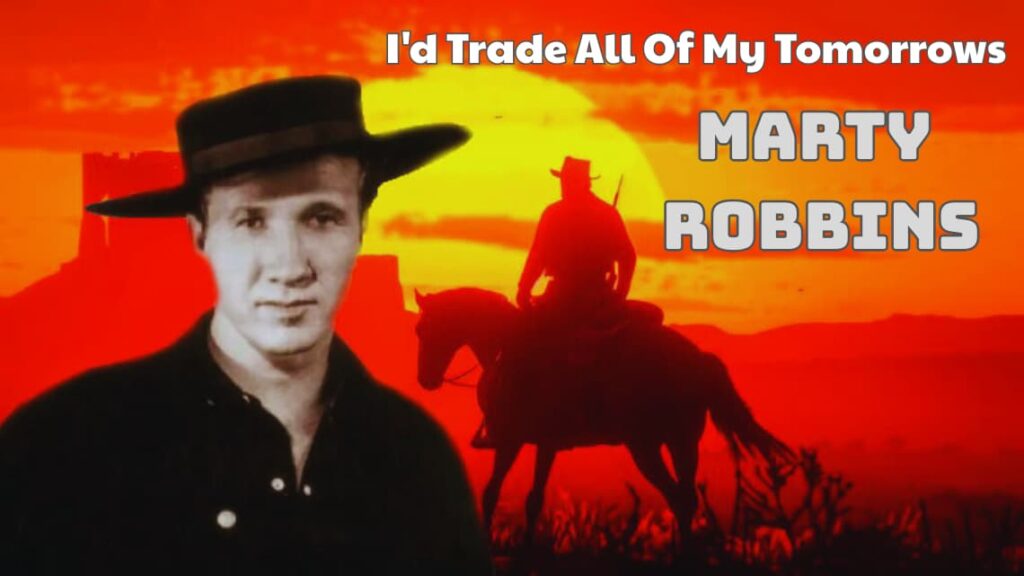
A Promise of Eternal Devotion, Sealed in a Single Tomorrow
In the tapestry of country music, certain threads are woven with such raw emotion and lyrical grace that they become timeless. One such thread, shimmering with a bittersweet ache, is Marty Robbins‘s “I’d Trade All Of My Tomorrows (For Just One Yesterday).” Released in 1963 on the album Hawaii’s Calling Me, this song is more than a tune; it’s a profound statement on the nature of love, loss, and the unshakeable power of memory. While it may not have reached the stratospheric heights of his signature hits like “El Paso” or “A White Sport Coat (and a Pink Carnation),” its impact was no less significant. It found its home on the Billboard Hot Country Singles chart, a testament to its resonance with an audience that understood the depth of its message.
The story behind this ballad is as classic as the song itself. It was the product of a particularly fertile period in Marty Robbins‘s career, a time when he was expertly navigating the delicate balance between traditional country, pop, and even Hawaiian music. The song’s genesis lies in a place of deep personal reflection, a testament to the fact that the most enduring songs often spring from the well of human experience. It’s a lyrical masterpiece that captures the essence of a love so profound that the past, even with its sorrows and joys, is infinitely more valuable than a future without that special someone. The lyrics, penned with a poet’s heart, speak of a man looking back on a lost love, his heart heavy with the weight of what was and what can never be again.
The meaning of “I’d Trade All Of My Tomorrows” is both simple and deeply complex. On the surface, it’s a lament for a love that has ended, a poignant expression of grief. But dig a little deeper, and you find a powerful philosophical statement. It’s a song that challenges the very notion of a future. For the narrator, a future without his beloved is not a future worth having. He is willing to give up every single one of his tomorrows—a lifetime of potential experiences, joys, and triumphs—for just one more yesterday, one more moment with the person he loves. This isn’t just about nostalgia; it’s about a love so complete that it makes the future seem irrelevant. The song captures the universal feeling of wishing you could turn back time, of knowing that certain moments are so precious that they are worth more than all the time that lies ahead.
For those of us who came of age with Marty Robbins‘s voice as the soundtrack to our lives, this song evokes a specific kind of memory. It’s the memory of a first love, a painful breakup, or perhaps a loved one who is no longer with us. It’s a song that we put on when we need a good cry, when we want to feel the full weight of our emotions, and when we need to be reminded that it’s okay to feel deeply. The melancholic steel guitar, the understated but powerful vocal performance, and the rich, descriptive lyrics all combine to create a soundscape of pure emotion. It’s a song that transports you back in time, not just to a specific decade, but to a specific feeling. It’s the feeling of a world that was, a world filled with a love so bright that its absence leaves an unfillable void. In “I’d Trade All Of My Tomorrows,” Marty Robbins didn’t just sing a song; he gave us a piece of his soul, a timeless reflection on the power of love and the enduring pain of its loss. It’s a song that reminds us that sometimes, the past is more beautiful than anything the future could ever hope to offer.